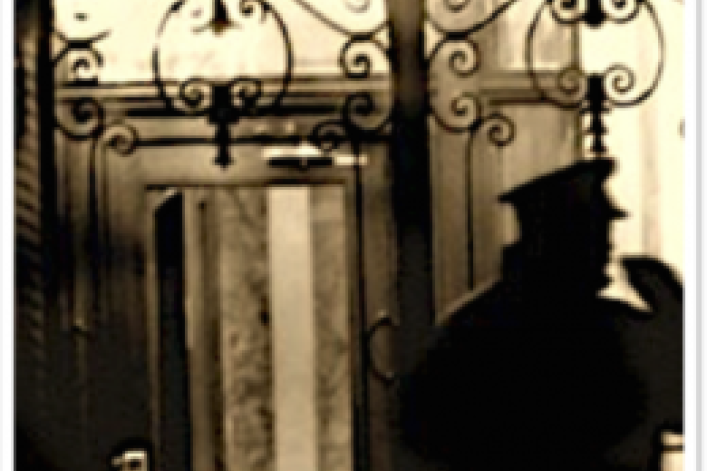Tips from a Doorman: Door to door service not included

This 50-year-old Tribeca doorman, who prefers to remain anonymous, has worked in the same luxury rental building for two and a half years.
Here is what he has to say about what makes someone a good or bad resident, salacious sightings on a previous job, and what it’s like to work in a full-service (and non-smoking) luxury building.
How does working in Tribeca compare to Midtown where you were before?
Midtown is very hectic -- I had an overnight shift that was very stressful for me. The building I worked in was near four nightclubs and there was constant traffic, and at the time when I first started working there, I saw a lot of drugs and prostitution.
I love working in Tribeca. I really love it down here. It's very secluded. It's like a suburb in the city.
What kinds of demands do you encounter on a daily basis?
Getting packages, making sure the dry cleaning is properly taken care of, directing traffic and people from residence to residence. You wear many hats.
What part of your job do you enjoy the most?
I love interaction with people.
What are the most challenging parts of your job?
Noise complaints; working in a building that’s supposed to be smoke free and there are people who smoke and won’t follow the rules, and you have to call them and write notes about them.
People sometimes feel entitled because they live where they live and they are who they are, but in actuality the rules apply to everyone and you have to be the one to enforce it. I don’t like that part of my job.
What’s the most common question that prospective tenants ask you?
How many apartments are vacant and what size they are. I don’t have the information since we have a leasing agency on the premises for that.
What’s one of your strangest or funniest memories as a doorman?
Oh, I don’t think I should tell you that one (laughing). Like I said, I worked the overnight shift in midtown and that was a little racy.
Racy? How so?
Where I worked there was a large plate glass window and I was standing by the door. I could see a prostitute and her john actually having intercourse outside in the corner by the building.
So what did you do?
First I was just like, OK this is not happening. Then I was like, I am wide awake, this is happening. I just went back behind the desk and did some other things, like look at the video monitors. I was there for a while and when I went back they were still going at it.
It was about 3:30 a.m. when they started and they finished at about 4:45 a.m., just about when the sun was coming up.
Did stuff like that happen a lot?
I am sure there were other stories, but that’s the one that stands out the most.
What makes someone a good tenant in the eyes of a doorman?
Just when you do things for someone and they seem really grateful for it. I’m not even talking about tips.
For me, it’s very heartwarming when you can tell the person is sincerely grateful and appreciative for something that you did for them.
What makes someone a bad tenant?
Someone who talks down to you and speaks to you in a very derogatory tone; someone who has nothing to say to you until they need or want something and are very demanding and not capable of showing any type of gratitude.
Where does a doorman draw the lines between the job description and what’s asked of them by a tenant?
You have to draw the lines with carrying a package up to the floors. You can’t carry a person’s package up to an apartment. [It's against union rules for a doorman to leave their post, because of security risks.]
There are a lot of risks involved when you carry a package up to someone’s apartment -- they expect that type of service all of the time. We have other people on staff for that type of service.
You risk being suspended, fired or written up.
Are there doormen who take money for services?
Some do. Sometimes people insist and you can’t refuse. I actually had a resident shove $20 in my pocket for bringing her bags to a taxi. As the saying goes, you can’t look a gift horse in the mouth. But you don’t want them to feel like you are expecting money all of the time.
You have to be the kind of person who enjoys doing service. When you do it, you do it because it’s coming from the place of you liking your job and liking the type of work you do.
I’m the kind of person who likes to perform duties that help people, and it makes me feel good on the inside. I know it sounds corny but that’s how I operate.
What kind of tips do you expect at Christmas?
I don’t really expect anything. I’m very grateful for whatever I receive. I do very well, I have to admit, but I don’t expect them to give me a certain amount.
If they choose to give me $5 or $10 it’s greatly appreciated, although that tells me that maybe my service is lacking in some place.
Also, when I receive a tip I like to read what the card says and it makes me decide whether I want to work harder. There are little personality traits that people seem to like about me and mention in the card, and that means more to me than receiving money for service.
If they don’t write anything in the card maybe it means I am lacking or need to work on something.
Tips from a Doorman features interviews with assorted New York City doormen, in an effort to get the inside scoop on the intriguing life of a Big Apple doorman. Because in New York apartment buildings, doormen don’t just open the doors – they pick up your packages, keep track of your friends and family, and they sometimes keep intimate secrets.
Related posts:
Tips from a Doorman: The coffee is nice, but he still won't move your car
Tips from a Doorman: "Be honest from the beginning about what you want. Be clear and be friendly."
BrickUnderground's 2011 Holiday Tipping Guide
Best of Brick: How to concierge your doorman
7 tipping rules for doormen and residents
10 Manhattan doormen talk tips


























